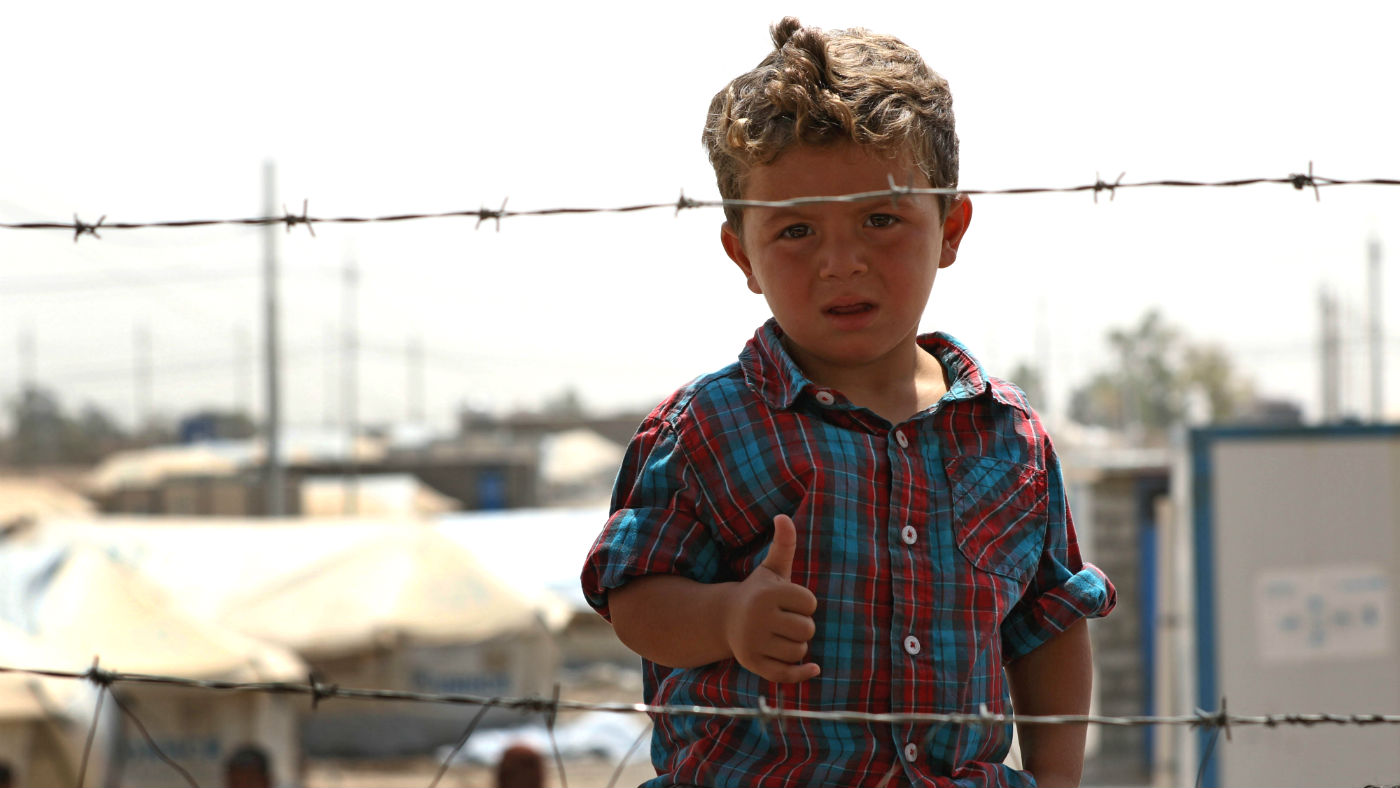Iraq holds 1,400 Islamic State relatives in ‘de facto detention’
Iraqi government must decide what to do with the wives and children of IS fighters held in a Mosul camp

A free daily email with the biggest news stories of the day – and the best features from TheWeek.com
You are now subscribed
Your newsletter sign-up was successful
Iraqi authorities are holding more than 1,400 foreign relatives of suspected Islamic State militants in camps in the north of the country, Reuters reports.
Security officials and charity workers told the news agency that wives and children of suspected IS fighters are being held at a camp south of the city of Mosul, which was liberated by Iraqi forces at the end of August.
Army Colonel Ahmed al-Taie, from Mosul’s Nineveh operation command, confirmed: “We are holding the Daesh [IS] families under tight security measures and waiting for government orders on how to deal with them.
The Week
Escape your echo chamber. Get the facts behind the news, plus analysis from multiple perspectives.

Sign up for The Week's Free Newsletters
From our morning news briefing to a weekly Good News Newsletter, get the best of The Week delivered directly to your inbox.
From our morning news briefing to a weekly Good News Newsletter, get the best of The Week delivered directly to your inbox.
“We treat them well. They are families of tough criminals who killed innocents in cold blood, but when we interrogated them we discovered that almost all of them were misled by vicious [IS] propaganda.”
The Norwegian Refugee Council, which is providing assistance at the camp, says the families are in “de facto detention” and urged the government to “swiftly move to clarify its future plans for these individuals”.
Iraqi army officers said many of the women and children no longer have their original documents, and were of as many as 14 different nationalities. A number come from Turkey, Tajikistan, Azerbaijan and Russia, along with a “very few” from France and Germany.
Senior security officials said the authorities are trying to find a safe place to house the families while negotiating with embassies for their return home, but that in the meantime they are not allowed to leave the camp.
A free daily email with the biggest news stories of the day – and the best features from TheWeek.com
Aid workers and the Iraqi authorities are worried about tensions between Iraqis who lost their homes, who are also living in the camp, and the new arrivals, “with many Iraqis wanting revenge for the hard treatment they received under IS’s interpretation of Sunni Islam”, says Al Jazeera.
-
 How the FCC’s ‘equal time’ rule works
How the FCC’s ‘equal time’ rule worksIn the Spotlight The law is at the heart of the Colbert-CBS conflict
-
 What is the endgame in the DHS shutdown?
What is the endgame in the DHS shutdown?Today’s Big Question Democrats want to rein in ICE’s immigration crackdown
-
 ‘Poor time management isn’t just an inconvenience’
‘Poor time management isn’t just an inconvenience’Instant Opinion Opinion, comment and editorials of the day
-
 Epstein files topple law CEO, roil UK government
Epstein files topple law CEO, roil UK governmentSpeed Read Peter Mandelson, Britain’s former ambassador to the US, is caught up in the scandal
-
 Iran and US prepare to meet after skirmishes
Iran and US prepare to meet after skirmishesSpeed Read The incident comes amid heightened tensions in the Middle East
-
 Israel retrieves final hostage’s body from Gaza
Israel retrieves final hostage’s body from GazaSpeed Read The 24-year-old police officer was killed during the initial Hamas attack
-
 China’s Xi targets top general in growing purge
China’s Xi targets top general in growing purgeSpeed Read Zhang Youxia is being investigated over ‘grave violations’ of the law
-
 Panama and Canada are negotiating over a crucial copper mine
Panama and Canada are negotiating over a crucial copper mineIn the Spotlight Panama is set to make a final decision on the mine this summer
-
 Why Greenland’s natural resources are nearly impossible to mine
Why Greenland’s natural resources are nearly impossible to mineThe Explainer The country’s natural landscape makes the task extremely difficult
-
 Iran cuts internet as protests escalate
Iran cuts internet as protests escalateSpeed Reada Government buildings across the country have been set on fire
-
 US nabs ‘shadow’ tanker claimed by Russia
US nabs ‘shadow’ tanker claimed by RussiaSpeed Read The ship was one of two vessels seized by the US military